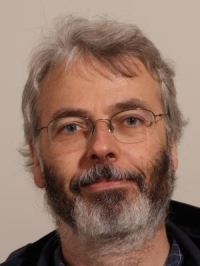
On January 30th 2020, Dr. Daniel Schulte of CERN presented a seminar at the JAI on the design of a future muon collider.
A muon collider could be a promising long-term alternative to the main proponents for high-energy lepton collisions, electron-positron colliders, as it may allow physicists to reach lepton collision energies far beyond what can reasonably be done with electron-positron colliders. The talk introduced the various lepton collider proposals and discussed their high-energy prospects. It also introduced the main concepts of a muon collider and the related technology required for a viable design. The pros and cons of each potential collider scheme were discussed as well as the next steps to be taken in order to assess the viability of a muon collider.
Dr. Schulte completed a PhD in 1996 at DESY, Hamburg, on detector backgrounds in future linear collider detectors. He began working at CERN in 1997 as a fellow and since 1998 has been a member of CERN staff. He has worked on many different accelerator and collider projects throughout his career, including both of the proposed linear colliders, the ILC and CLIC, as well as circular collider projects the LHC and FCC-hh. He is currently leading the machine design studies for CLIC and the FCC-hh projects. Furthermore, he is part of the muon collider review working group for the European strategy update.